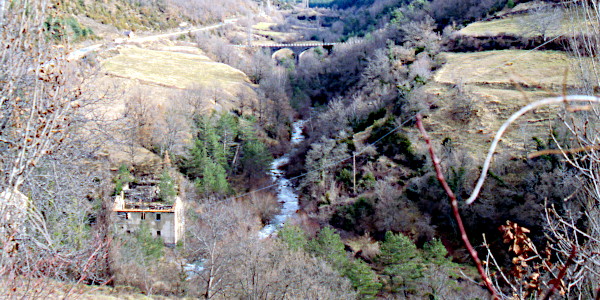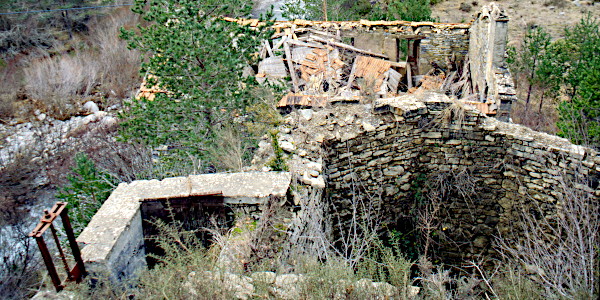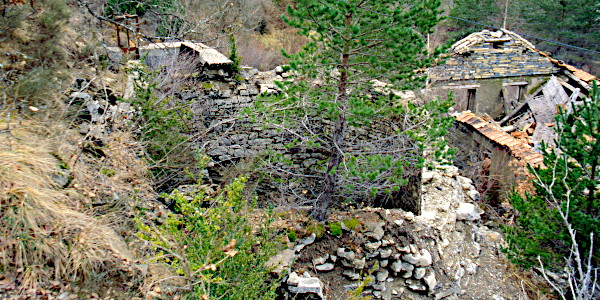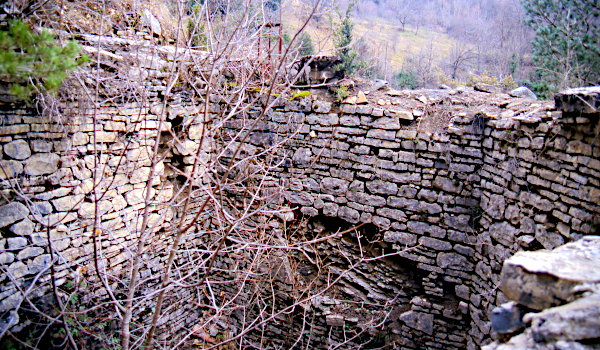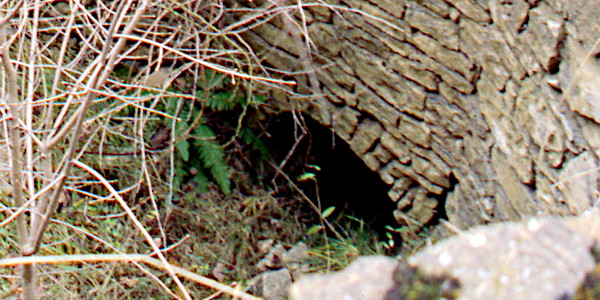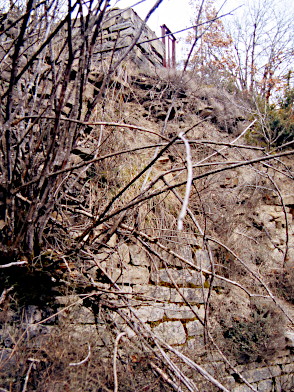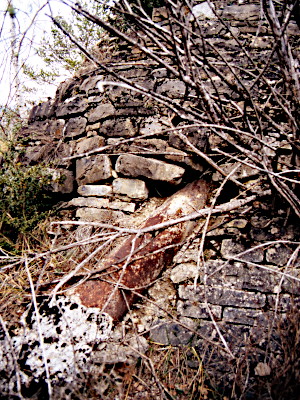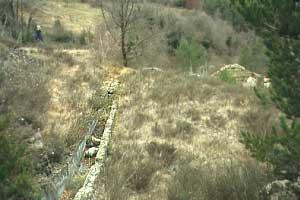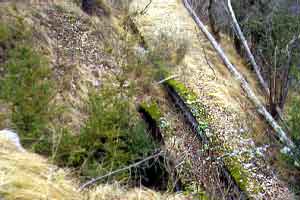Mills in Alto Aragón - harinero, central eléctrica
Yésero
Yésero is situated in the
Alto Gállego region and is on the road from
Biescas towards
Torla and the famous
Ordesa National Park. Pass the Tunél de Gavín and park your vehicle at the branch to Yésero.
The mill is down in the river bed (1) at the confluence of the
Barrancos del Infierno and
de Lanaza.
Pictures: xii.1997, 27.xii.2003
The waterworks, certainly the storage part, are impressive.
The water storage is built higher up the slope next to the mill (2, 3). Its base is level with the upper floor
of the mill and with an estimated depth of about 6 m it is towering above the roof of the mill.
The thick walls (4) are built with mud, boulders, bricks, cut natural stone, almost without the use of any cement.
There are in fact two reservoirs that are not connected. The biggest
container, with sides of about 4 m (right in 2, front in 3, 4) serves as storage but at the same time
also as a pressure pit (cubo). At the bottom one can see an arch (5) which is the beginning of the pressure pipe for the grain mill.
The second container is much narrower (left in 2, 6),
therefore with a much smaller capacity and is in fact just a large pressure pit.
A grille protects the entrance of the pressure pipe (7) that runs down to the second turbine.
This pressure pit is equipped with an overflow door (2) which functions as an overflow device for the
whole system.
That is because the wall common to both reservoirs (2) is a few stones lower than the rest and as a result the pond will overflow into the pressure pit just before it is full to the brim. This also ensures that the second turbine can use excess water from the grain mill. It could have been the other way around. We're not sure.
The system is fed by two supply channels.
The first, small and shallow (8), comes from the Barranco del Infierno and was
largely buried under the basement of the road when that was brought up to modern standards.
The other canal (9) is much bigger and longs the Bco de Lanaza.
We could not find the point where water was taken from both rivers.
It is also not clear if the supply channels connected to both reservoirs.
It seems that only the smaller pressure pit was connected. If so, then this pit was filled first and only water that was not needed here would fill the pond for the grain mill. Our conclusion is that there must have been competition between the two turbines and that the grain mill was considered less important.


